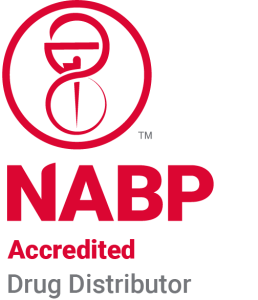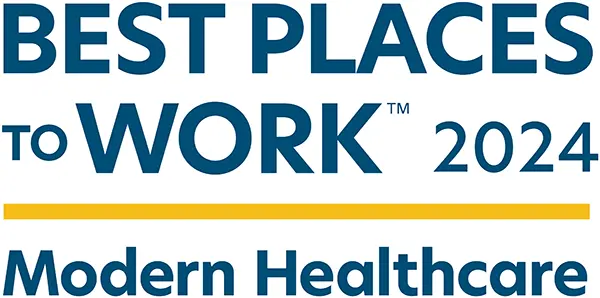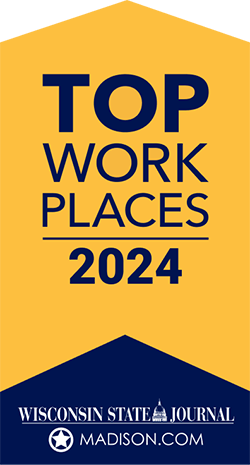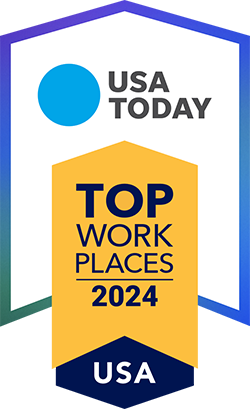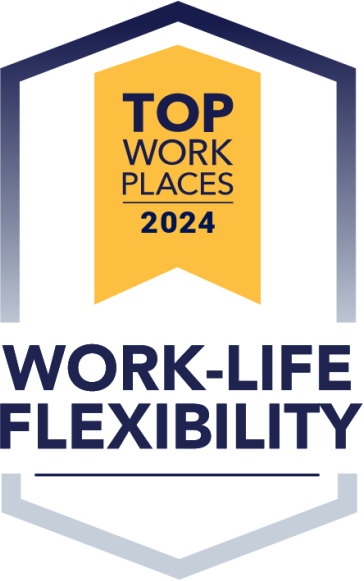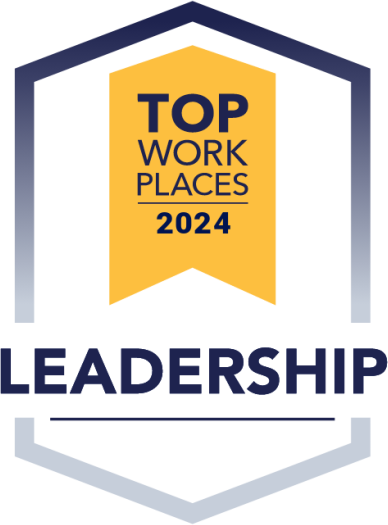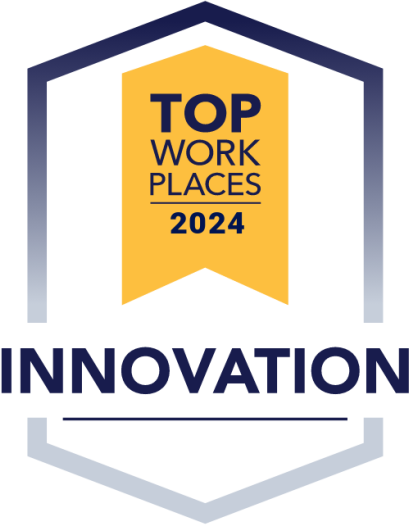Get ready for a spotlight dose of expert conversations from the Big Easy! In this episode, we’re live at the McKesson ideaShare 2024 inside the Independent Pharmacy Cooperative (IPC) Booth, bringing you the best moments and insights from this event helping to transform community pharmacy. Join us as we speak with some of the brightest minds in the industry:
Guests
Matthew Coakley – Waypoint Company
Paul Grisnik – RxXpress HealthMart Pharmacy
Nancy Lyons – VP Chief Pharm Officer HealthMart
Michael Deninger – CTO Towncrest Pharmacy
John Rutowski – Cy’s Elma Pharmacy | Winner of the IPC Truck Giveaway
Dr. Nandita Koodie – Remote Patient Care Services Consultant ICBN
This podcast is part of a series.
- Listen to part one.
- Listen to part Three.
Transcript
Announcer (00:07):
At the Waypoint Company, our sole purpose is to empower independent pharmacy owners because we know you are the heartbeat of your community. We know the challenges you face, and that’s why we deliver new ways for you to thrive outside of the PBM model. From helping you keep your most valuable employees to providing proven ways to earn new, sustainable and profitable income to simply saving money, we’re here to help your pharmacy thrive while protecting your financial independence. Waypoint is more than a company. Together with the pharmacy owners and communities we serve, we’re a movement. Together we are reclaiming resources, being stripped away by profit First people Last big business, Waypoint Company, your partner in prosperity. Join the movement today by visiting our [email protected]. IPC Digital Health is an integrated virtual healthcare company that delivers member value added services through a profitable online, easy to use, an end-to-end virtual healthcare solution. Digital health patients receive access to affordable care provided by board certified and licensed providers. Through a video conferencing software, patients are offered many benefits such as a use of a diverse set of healthcare tools to treat acute illnesses, monitor chronic conditions, purchase and receive home health kits and remote lab diagnostic services. To learn more about IPC’s digital health tools, visit my iCare plus.com. That’s my iCare plus.com.
Announcer 2 (02:00):
You are listening to the Pharmacy Podcast Network.
Announcer (02:16):
Welcome to the McKesson Idea Share podcast series post show. The pharmacy podcast network was partnered with the Independent pharmacy cooperative, better known as IPC, while in New Orleans at the 2024 event. Special thank you to the IPC team for hosting the PPN inside of their magnificent booth, and now recorded live in the big easy you’re all invited to, as they say in New Orleans. Pass a good time with our host and founder of the Pharmacy podcast network. Todd Yuri.
Todd Eury (02:46):
Hey, I ran into Matt Coakley here with Waypoint at the 2024 McKesson idea share. Matt, it’s so good to see you. It
Matthew Coakley (02:56):
Is great to be seen. So you got an awesome setup back here.
Todd Eury (03:00):
Yeah, the IPC booth is just incredible. It’s huge. One of the anchoring booths here. They have a lot of going on, a lot of different programs. Talk to us about you being part of Idea share, McKesson’s Idea share, what draws you to this conference?
Matthew Coakley (03:16):
It is always really well attended and I think across all of our clients, probably McKesson is the biggest represented wholesaler where we’re located geographically, we get a lot of IPC members and a couple of the other buying groups. So it’s a good place to come see a lot of friends, a lot of pharmacy people that we’ve known for a long time clients and then it’s always been good for new business as well.
Todd Eury (03:39):
How long has your family been part of the independent community pharmacy business?
Matthew Coakley (03:45):
Oh, that’s a great question. We go back, our oldest pharmacy clients started working with dad in the early eighties, so we’ve been taking care of pharmacies and pharmacists for a long time as our primary focus of our business really since about 2005 when my brother came on board and revamped our marketing and stuff and we realized how much synergy we have with our small town vibe with a lot of pharmacies and really ramped it up at that point.
Todd Eury (04:14):
You’re mainly a two brother team and then you have an entire people that are supporting you in marketing and stuff like that. Got a shout out to Ben Coakley who wasn’t able to be here in New Orleans this time. Talk to me about that dynamic. I work with my family as well. Brady’s our sound engineer, Tyler’s in our graphics and creative division. That’s my daughter. What’s it like to work with your brother?
Matthew Coakley (04:37):
Oh, I love it. Ben and I compliment each other so well. He moves a thousand miles an hour. If you guys, people listening to this, probably a lot of ’em have had conversations with him, but he’s always go, go, go and a lot more methodical. So we have a little bit of the tortoise in the hare thing going on and it tends to compliment really well because he probably would be involved in everything and spread too thin if it was just him and I probably would not be doing a whole lot of this stuff that we actually do. So it works out well. There’s some interesting dynamics when anytime you have family involved, but I wouldn’t trade it for anything. I’m really close with my dad too. He’s mostly retired, but I still kind of think of him as the chairman of the board. I lean on him a lot for his experiences. We get along really well. My mom still answers the phone if you call our office, so she loves to work. She is getting ready to turn 72, but she is great. She likes coming to the office and talk to our clients, so we kind of hit the whole Coakley spectrum.
Todd Eury (05:37):
That’s great. Alright, if you want to learn more about this family and this team, go to waypoint us.com. Once again, that’s waypoint us.com. I really, really appreciate way point’s involvement in this year’s coverage of the McKesson idea share and we hope to work with you next time.
Matthew Coakley (05:55):
Thank you very much. We appreciate you guys.
Todd Eury (05:57):
Thank you.
Matthew Coakley (06:03):
Hey, this is Matt Coakley, CEO of the Waypoint Companies, and you are listening to the McKesson Idea Share 2024
Todd Eury (06:15):
McKesson Idea Share 2024. We are at the IPC booth and I’m here with Paul Grisnik with RX Express out of Grove City, Pennsylvania, which is my neck of the woods. Paul, welcome to the post show.
Paul Grisnik (06:28):
Well, thank you for having me here.
Todd Eury (06:30):
You’re very welcome. Let’s talk about when I entered Pharmacy 2004 to today, it’s a 20 year anniversary for me in 2024. So much has changed. However, the secret sauce is really being a sincere part of the community that’s been a staple for your organization. Talk to us about how you’ve grown over the years and how you’ve sustained and thrived
Paul Grisnik (06:58):
How we’ve grown over the years. I guess the thing is we’ve always cared about our patients and we’ve put our patients first and their needs. So we’ve always tried to give them an exceptional service, giving ’em a service more than they would expect to have, and I guess that’s driven people to us. At least that’s what they tell us once they walk in our doors and we’re able to answer their questions and meet their needs, normally we have them as a customer from there on end. A funny thing happened a few years ago during Covid. At that time, right before we had just remodeled and expanded our business, the blueprint, and at that time I had taken some time off to go down to Florida basically for a little bit of r and r, and when I came back I saw some things that needed to be done and I thought the pharmacy’s busy.
(07:59):
Everybody’s tied up. I pulled out a step ladder, I’m up working in a ceiling just doing some things and I saw some patients wandering around in the store looking at things and I called down from the stepladder and said, Hey, do you need help with something? The guy looked at me and he said, it looked at me kind of strange, who are you? Because I was just dressed in work clothes and I get off the ladder and I helped him with his need and there was another couple there and I helped them and they took my advice. They checked out and I went back to my work thinking nothing of it. A month later, my son-in-Law, who also is a pharmacist, and our practice gives me a call and he said, oh, funny thing happened today. And I said, what was that? He said, this couple came in and they said, we want to transfer all of our prescriptions to you.
(08:55):
And he said, well, that’s great. And he said he introduced himself and got their information and where they wanted everything transferred from. He said, we appreciate your business. He said, well, we were here about a month ago and one of your employees, I think he was a maintenance man, came down and helped us out and he was really knowledgeable and if he’s that knowledgeable, what are the pharmacists like? So I said, so did you tell him who I was? He said, no, we let it go. You’re the maintenance guy. So I guess the thing is we really care about our patients that come in and we want to be able to continue to service them. And we believe that independent pharmacy, not just us but all independent pharmacies, that’s what they strive for, is to help their community, to help their patients, to make them part of their families, and that’s what our patients are. So how do we grow? I guess that’s a key ingredient. We can all bring in different new programs, which we try to do on a regular basis, be it weight loss, be it nutrition, be it compounding, and we can all do that. We all have the expertise, we’re all trained that way, but I think it’s showing that you care for your patients. That makes a difference.
Todd Eury (10:19):
That’s so true. It’s the sincerity. People can pick that up. They feel like they’re actually being listened to and cared about, and even if it was the maintenance man, it really reflected on them. But isn’t that funny that a community pharmacy owner is the maintenance man, is the pharmacist, is the janitor, is the human resource department, and that all comes back to the community. That all impacts the community.
Paul Grisnik (10:43):
I think it does. And I guess my thing is, and I’m not just saying this, I would never ask somebody out to do something that I wouldn’t do myself, and that doesn’t make me special or anything else. It’s just what we do. And I think we do that as a profession, but I think also as our profession, we really deserve to be reimbursed for what we do too many times. We just give everything away and I think we’re seeing where that’s God, us. So I think in the future we have to make sure that we are being reimbursed and properly recognized as a provider of healthcare, not just as a dispenser.
Todd Eury (11:26):
Well, I’ve watched you grow over the years. I’m proud to have you here on the post show. You’re also exciting to say that the second generation is now being absorbed into your business. Your son-in-Law and your daughter are actually part of your business. I remember talking to them 10 years ago before they even got involved.
Paul Grisnik (11:44):
They are, and we’re looking forward to them to be able to carry on with the pharmacy and to expand it. When I look at my daughter and I look at my son-in-Law, the way they interact and our other employees, also my other pharmacist and my employees, I see that they care and I like the relationships that they have and it’s nice. Now, in the past, people would always be coming in looking for my wife, which is a pharmacist, Pam or myself. Now they come in and they’re asking for John and Mary. So it’s a nice transition to see them earning the trust and the respect of our patients and they wanting to be part of their families also. So I’m not the greatest speaker, as you can tell, but I just would love to see independent pharmacy and I hope it continues to thrive
Todd Eury (12:43):
In the future. We agree we’re going to do anything that we can. Paul, thank you so much for being part of the post show. Well,
Paul Grisnik (12:48):
Thank you.
Todd Eury (12:54):
McKesson Idea Share 2024. I tell you, it’s so good to be back. I’m here with Nancy Lyons. Nancy, welcome to the Post show.
Nancy Lyons (13:03):
Thank you. I’m really excited to be here. This show this year is such a breath of fresh air. I think with our your town USA theme that we walk into and everybody just being able to see how the things that we’re bringing in the show can be applied back at their own local hometowns. The imagery is really striking, so I’m so excited.
Todd Eury (13:25):
It is. When I walked into the exhibits and the layout, the hometown feel as you walk up the center with the benches off to the side, it’s gorgeous. I’m so excited to be here.
Nancy Lyons (13:38):
And the things like the community center, the apothecary being front and front and center in front of that Health Mart pharmacy just brings home that whole message with patient care, which is what my team focuses so much on. Just making sure that we’re there for the community pharmacies that are doing what’s right for their patients.
Todd Eury (13:56):
Alright, so let’s talk about patient care. McKesson has infrastructure in place for so many different things, technology, clinical programs, reimbursement, obviously wholesale. Talk to me about a special program that you’re helping to lead.
Nancy Lyons (14:13):
Yeah, one of the things that we’re most excited about is actually a partnership that we put together Leveraging some of the strength of McKesson with Health Mart and Health Mart Atlas and the things that we do, but really going with the power of the profession with the American Pharmacist Association Foundation, A PHA foundation, and their project impact projects that have been around for 30 years and more really work on making sure that pharmacists care is in the forefront. It’s always compensated fairly. There’s no doing things because it’s the right thing to do without the payment coming in. And then it also focuses on that research so that we’re building that body of evidence so the states and the federal government can see that patient-centered care includes pharmacists on that team.
Todd Eury (14:59):
I almost think it’s almost an education as you do it because CMS has to realize that the outcomes when a pharmacist is involved driving the clinical needs of that patient in specific situations, especially around chronic disease states, now shows them based on data that it’s in the best interest of this patient and it’s also in the best interest of public health.
Nancy Lyons (15:22):
Well, and the entire care team, we hear a lot of noise often that pharmacists are trying to overstep their bounds. We’re just trying to be a part of that care team with the patient in the center driving the care that works for them best. And with that A PHA foundation relationship that we have, a PHA foundation will credential them, which is often a difficult part of the process that pharmacists shy away from. And then the Project Impact team also has a documentation system that when you do the patient care and put it in, the rest of it happens almost automagically. A PHA takes care of the billing to the appropriate people. And then with our central pay asset in our Health Mart Atlas group, we’re able to get the money into their checking accounts. So it’s still more bifurcated than I would like it to be.
(16:14):
Pharmacists should be able to have the same payment systems as any other healthcare provider, but right now it works. In fact, we hear all of the things with HR 1770 and the equitable community access to Pharmacist Care services and not being able to bill. C-M-S-A-P-H-A foundation found a way around that by becoming a CMS umbrella provider for the Diabetes prevention program. So pharmacists who enroll with us get credentialed meeting a PHA standards, A PHA foundation standards and do the services, put the patients through. They’re actually getting paid from CMS and the money showing up in their checking account without all of that difficult accreditation processes because the foundation took care of that, and we took care of making sure that their money flows in the way that they need it to.
Todd Eury (17:03):
When I think of the positioning of Health Mart in so many different communities throughout the nation, I feel that you are getting ready for what’s to come in home care and how the home is going to become the future long-term care center in some ways because of the needs of people that don’t want to leave their home. How’s McKesson? What are other things McKesson doing to prepare for that future?
Nancy Lyons (17:26):
Yeah, it’s really exciting. I mean, I think we’ve definitely seen that shift with all the things in Covid and what we saw happening in the nursing homes. People are taking more proactive approaches. I myself moved into a house now that has a main floor master for the inevitability that I might not be able to climb stairs someday, but hopefully far in the future. But with that interest, with that growing population, you really need people that can come into the home and a lot of our pharmacies do home delivery. But what we were excited to launch, we actually launched at the Idea Share last year was a scholarship for community health workers to train certified pharmacy technicians. So last year we had on stage a pharmacy that had done that and turned their delivery driver, who was a great technician, but he kind of thought of himself as the delivery, the drug delivery guy. He went through a community health worker training and he was doing fall risk assessments and they were entering it into a patient care model. He carried around a notebook and did those types of pre services for the pharmacist, which is why I think all of us want to practice where we have the right people doing the right level of service, all for those patients.
Todd Eury (18:43):
Nancy Lyons, we appreciate you being part of the McKesson Idea Share 2024 post show. We hope to be back next year.
Nancy Lyons (18:51):
We’re going to be in a really fun city, so I’m sure you should come there too.
Todd Eury (18:56):
Thank you so much.
Nancy Lyons (18:57):
Alright, thanks.
Todd Eury (19:05):
We are here at IPC McKesson’s Idea Share here at the IPC booth, and I’m here with board member Michael Denninger with Town Crest Pharmacy. Michael, it’s been some time since we’ve run into each other at a conference. It might’ve been like the NCPA or something like that. I
Michael Deninger (19:22):
Think we talked last year about this time as well. But yes,
Todd Eury (19:25):
I can’t remember. How are you? I’m
Michael Deninger (19:28):
Doing fantastic. How about yourself, Todd?
Todd Eury (19:30):
Good. So I want to talk about things that you’re doing at your pharmacy that are making an impact to your community. And you and I before started recording, just we’re touching on some of the things that are really making you stand out as a community independent pharmacy. So share with our listeners some of the things you guys are working on.
Michael Deninger (19:48):
Well, we’ve got a lot of programs going on right now, but one of the ones that I’m most excited about has been collaboration with our state Medicaid, who has been trying to get more people on continuous glucose monitoring. So they’ve actually created a program to pay pharmacies to do that initial setup and follow up. And we have found not only are patients very receptive and appreciative of that service, but we’ve actually found some issues and been able to forward on to doctors information that they didn’t otherwise have. So it’s been a very, very beneficial program for us, but for their customers and also I think the Medicaid.
Todd Eury (20:24):
So tell me about the technical side of this. Are you guys using any technology to help kind of monitor these glucose levels?
Michael Deninger (20:33):
Well, the glucose monitors on the market are their own technology already. The difference here is that when we are setting somebody up, we set them up like the doctor would as well. We have access to that readings and we can then follow up with the patient if we see some things and trends that are going on, bring them back in, make some adjustments. We can work with the doctor to change insulin therapy if they’re on a pump to make some modifications with that. So it really gives us a better touch point with the patient. That technology allows us to see what’s going on on a day by day basis.
Todd Eury (21:04):
Now is this some of the things that are being tied into the Eyecare plus systems here at IPC? It’s
Michael Deninger (21:10):
Not directly into what iCare Plus is currently doing, but there’s a lot of very similar things going on with Eyecare plus Eyecare Plus has remote patient monitoring, indifferent senses. I mean, continuous glucose monitor could eventually make its way into Eyecare Plus, but now it’s weight, blood pressure and things like that so that the doctors and the pharmacy have again that touch point on what’s going on. We know if we need to make an intervention or if things are being successful. That’s our goal as a pharmacist. Is this therapy the right therapy? Are we meeting our outcomes and is it safe and effective? That middle part is our outcome being met. It’s very hard to measure sometimes. And remote patient monitoring and things like that, continuous glucose monitors really go a long way to providing that little piece of information that we need to make that assessment.
Todd Eury (22:02):
Alright, in our walk, in our time as people in healthcare, there’s other things happening in the shift of our worlds and our lives. Sometimes we’re asked to take leadership roles, you are up for a leadership role and to take boats for your position. Talk to our listeners a little bit about what you’re going to be doing. Yeah,
Michael Deninger (22:27):
So IPC is a wonderful organization and a big part of successful community pharmacy. That’s why I’ve been involved with IPC for as many years as I have. And several years ago I made the decision to run for the board of directors and it took me a few times to become elected. I have served two terms now as a director and I’ve been very privileged to have been involved in some of the dramatic changes. IPC has been able to help enact in the pharmacy realm, independent pharmacy in particular. And so I’m up for reelection for the board of directors. There are four incumbents and a new entry into the field. Elections for IPC are generally not well voted on. So I want to make sure people know that they do need to take the opportunity log into the IPC website, pick your four candidates out of the five that are up for election and make your vote count. And obviously I would appreciate anybody’s support and vote, but it’s probably more important than anything just to vote and make sure that your cooperative is successful because it is your cooperative.
Todd Eury (23:29):
This is awesome. Alright, well we’re excited that we’re part of the IPC team here at the Idea Share McKesson Idea Share 2024, and we’re looking forward to seeing you next year.
Michael Deninger (23:41):
I will be here actually. It’ll be Nashville. Won’t be here.
Todd Eury (23:43):
Nashville. All right, thanks Michael. Talk to you soon.
John Rutowski (23:46):
Bye-Bye.
Todd Eury (23:54):
We’re here at McKesson Idea year 2024 at the IPC booth, and I’m standing here with John Rakowski. He is the winner of the Dodge Ram truck that was raffled off. How’d it work, John? How did you win this truck?
John Rutowski (24:09):
Well, it was actually quite interesting because they ended up, we’ve gone to these shows for many years since, probably since around 2003. And usually it’s like when they would draw names, like somebody would just yell and they would run up to the stage. This time they picked one name, I can’t remember where they were from, and they didn’t show up. And then so they did it again. They rolled the drum, grabbed another name, called out the name, nobody was there. And now the third one, a person actually, they called out the name and the person that was with them was there, but they weren’t there from that pharmacy. So number three strikes and they still didn’t find anybody. So we were the fourth name that was picked. And they said that somebody from New York, anybody here from New York raised your hand. So we raised our hand, but we’re from Western New York. We have stores around Lake Erie and we figured it’s not going to happen to us. It’s going to be somebody from downstate in New York City. They said, then they said size Elmo Pharmacy, which was our pharmacy, plus pleasantly surprised that we were the winners. That’s
Todd Eury (25:39):
Awesome. Well, congratulations. So tell me a little bit about your pharmacy. You said if you have one that’s near, I’m from Pittsburgh, so we go up to Erie a lot. But talk to me about the geographic area that you serve in your
John Rutowski (25:50):
Community. We actually, as a family owned operation, my father started it about 40, 44 years ago, but he passed away six years ago. And my brothers and myself, actually four of my brothers or three of my brothers and myself were actually the president owners of the business. And then I have a son from Benjamin that’s in the business that is a pharmacist. And his
Todd Eury (26:22):
Third generation.
John Rutowski (26:23):
Yes. And his future wife is also a pharmacist and she works for us. We actually have eight stores in the Western New York area. Excuse me. We have rural and metropolitan locations. We try to do anything that we possibly can to help the people in our community. So we try to get involved. We have students actually come that rotate through our stores, just like internship programs. We do all the clinics, like immunization clinics. We did testing when it was appropriate, but we try to help the people in our community.
Todd Eury (27:07):
That’s awesome. So the truck is white. It’s gorgeous. It’s a big four door truck, the Ram, I forget which Ram. Which Ram is that? I am not sure. A 1500 or something. Big truck. It being white. Do you think you’ll wrap it with some pharmacy decals and make it like a delivery truck?
John Rutowski (27:24):
Actually, that’s a very good idea with the Health Mart and the IPC and all the logos. It would be look really nice. It was a great
Todd Eury (27:33):
Idea. You’ll looking for it. Send us a picture if you send it and we’ll send it on social media. Will do. John, thank you so much for being part of the show.
John Rutowski (27:40):
Okay, appreciate
Todd Eury (27:41):
It.
Dr. Nandita Koodie (27:48):
Hi, my name is Dr. Nida Koodie. I am a pharmacist by trade with Perfect Balance Healthcare, and we are here live with you at McKesson’s Idea Shared 2024 post-show with one of my favorite people. Todd Mur.
Todd Eury (28:04):
You know what? It’s fun to have someone else open the show for you. So na, thank you so much for saying that and for being here. And it’s always nice seeing you when you walk through a conference and I see UFR, you have a beam around you, you have this light around you that’s very hopeful and very inspiring and it’s always been that way since you were with PDS. And when we first met there. I’ve been drawn to your energy and the sincerity of what you want to do for and with pharmacists and pharmacy owners. So let’s talk about the transformation of pharmacy. I’m celebrating my 20th year in pharmacy in 2024, and so much has changed over the last 20 years. I don’t feel that old, but I am. And
Dr. Nandita Koodie (28:48):
Oh, you’re in your prime.
Todd Eury (28:49):
Yes, I’m ready to go. And what I’m wondering from your perspective, because you’ve seen things change too, is where are we going? Where is the pharmacist going? Where is our community pharmacist going right now?
Dr. Nandita Koodie (29:03):
Well, first thank you so much for the pleasure of being here and the honor to share as a voice in this industry. And I think for me, I’m relatively younger compared to a lot of people in the room, but I feel like I’ve seen so many different facets of pharmacy from the big box chains to long-term care spaces, managed care spaces, closed door spaces, and then different types of trades of pharmacy, whether it’s industry or whether it’s getting into compounding only or service only. And I think that the common denominator has really shifted around the identity of the pharmacy. Things like dispensing has become a dirty word, and it doesn’t have to be, it’s why patients come to us. It’s why we’re essential, right? Things like compounding are considered innovative and how do I start this in my pharmacy? But to me it’s genetic, it’s hereditary, it’s who we are as apothecaries.
(29:57):
And then when we think about patient care services, even the way it’s presented in some places is as an add-on. But it’s really the essence of why patients come to us is for that relationship. And what I’m hoping to see is that this shift continues back to vintage healthcare because what I’ve observed is that, yeah, we’ve had a product centered focus when I first came out of school, I saw that in 2014, and then I see the shift towards service centered pharmacy, but it’s still not where it should be back at patient centered care. So that vintage healthcare where we’re actively listening to the patient and responding with pharmacy-based initiatives intelligently versus let’s promote that profit night of the month or the NBC that’s hidden this week,
Todd Eury (30:45):
Right? Like the ozempic or some of the fads that don’t sustain and nor does it sustain the health. There are a lot of people that I’ve personally known that have lost weight and they got off of what they were on, and now they’re in the holistic side of things. And that’s a really good transition. And they did that with pharmacist support. But then there’s the other half of the population that’s trying to get a quick fix, quick fix, quick fix, and it’s never a quick fix. Your health is not a quick fix. It’s an investment. And there are a lot of pharmacists out there, especially now, these influencers that are out on Instagram and TikTok that are teaching the community and their patient base and public health. It needs to be a priority. And pharmacists are stepping up to fill in the gap between these busy physicians that do not have time to spend with their patients at the level that a pharmacist does. However, we need to get them paid in order to spend time with the patients and drill down into the treatment.
Dr. Nandita Koodie (31:49):
There’s a couple of things that you did that really resonated with me and one of ’em, I actually currently work as a business development officer for Dan Venmo’s stores. So it’s nice to continue to serve a alongside him, miss. Yeah, what an awesome person. One of the things he was saying is we were developing a weight loss management program, concierge program that we’re working on was our patients that are on these GMPs, whether it’s commercial or compounded, they come off and they’re really happy how they look with clothes on, but not so happy with how they look with clothes off. And that’s because we’re thinking about weight and not body composition. So thinking really carefully around our messaging and what the goal is for our patients, even in the weight loss space, is it weight as the KPI or what is it really that we’re offering?
(32:35):
And for me and what we’ve been working on with our team there at R-X-V-I-P is focusing on the transformation, the lifestyle. Even if you look at the ADAS guidelines as they shifted over the years of my practice, lifestyle is now the priority and first line, which is so encouraging to see that it is about the patient’s lives and not just a magic wand of a drug. Yes, de ozempic and wegovy and manjaro. Some glut and tirzepatide compounds. Do they work? Can they help you lose weight? Yes, they can. But it is a tool. It is just one of the many different things that you can use. But at the end of the day, it’s kind of like soap without water. If you’re not going in and doing work with the patient and getting into it with them around their lifestyle and how this needs to change to where they’re not a slave to that medication, but they can graduate and there is an end point, there is a success to celebrate, then I think you’re missing the mark on the point of what it is that they’re seeking from you.
Todd Eury (33:35):
Well, I wanted to ask you, in your own transition from 2014 to today, and you’re celebrating your 10th year, which is interesting. Talk to me about influence and talk to me about content development and how pharmacists, pharmacy owners must be involved in it in order to get messages across that isn’t being provided by really any other entity out there.
Dr. Nandita Koodie (34:03):
Yeah, that’s a really good point, Todd. I think for me, what I wish somebody would’ve told me in 2014 is that if you can’t just go from company to company in person to person seeking a change that you desire, you do have to be the change that you want to see. And I’m sure you might’ve heard that before, but what does that look like? It means figuring out what needs to be true. As my good friend Patrick Lot, who is a leadership and management executive coach would say, you really have to figure out what has to be true for this to happen. What do I need to get where I want to go? And what’s encouraging is we live in a time when it’s so easy to connect with people worldwide to get those answers, whether it be through social media or great events like this one here at McKesson Idea Share.
(34:53):
You could connect with thought leaders or people who have kind of figured out the little pieces of the puzzle that you need to get where you’re going and applying it in your space and with your initiative. So for me personally, I jumped from company to company every year trying to figure out whose culture can I stand behind and who shares my beliefs. And no matter where you go, you’re never going to find someone that’s in complete alignment with everything that you would want to see change and influence. And that’s where you have to find the courage and the faith. For me, faith was what was missing initially and that I was so grateful to find in my own spiritual journey to really help me take that leap and say, okay, how does one register their own business? Even in all these basic questions you don’t get in pharmacy school, they teach us all the clinical stuff.
(35:40):
There’s no business acumen and financial acumen. The idea of management in pharmacy school is more of what end caps and what permits do you need, but no one’s telling you about where to start and what’s next and giving you a stepwise approach. So it’s encouraging to work with people. Currently, I’m collaborating with ICBN on the Medicare enrollment side of how do you get monetized for things we already do. And that’s why it kind of made sense for me to department with them. The types of things that I love to empower pharmacists with is, you’re already doing this, you know, could get paid for it. Let me show you how instead of trying to add burden, whether like you said, it’s to the physician’s office or otherwise, how can you go ahead and monetize the activities that you’re already doing and do it better?
Todd Eury (36:25):
Naida, this has been good. We want to thank you for sharing on the McKesson I idea share post show here at the IPC booth. I cannot wait to see, are you going to NCPA in Columbus?
Dr. Nandita Koodie (36:35):
I would aspire to whatever God’s will is for my life is where I’ll go. I make my plans and he giggles. Right? But I would hope to be there. I hope to see you guys at RBC and at ThoughtSpot, but I see that they’re happening on the same weekend, so we’re going to have to flip a coin on that one. But yeah, follow me. I’m all over LinkedIn, Twitter, Facebook, ig. I don’t snap. I don’t tick and I don’t talk. But you can find me on all of those things. And of course I may, I just might do an episode on lipstick more soon and reactivate that. I
Todd Eury (37:11):
Would love that. Well, thank you.
Dr. Nandita Koodie (37:14):
Yeah, thanks for having me. It is such a privilege to be here. Thank you for the privilege of your time.
